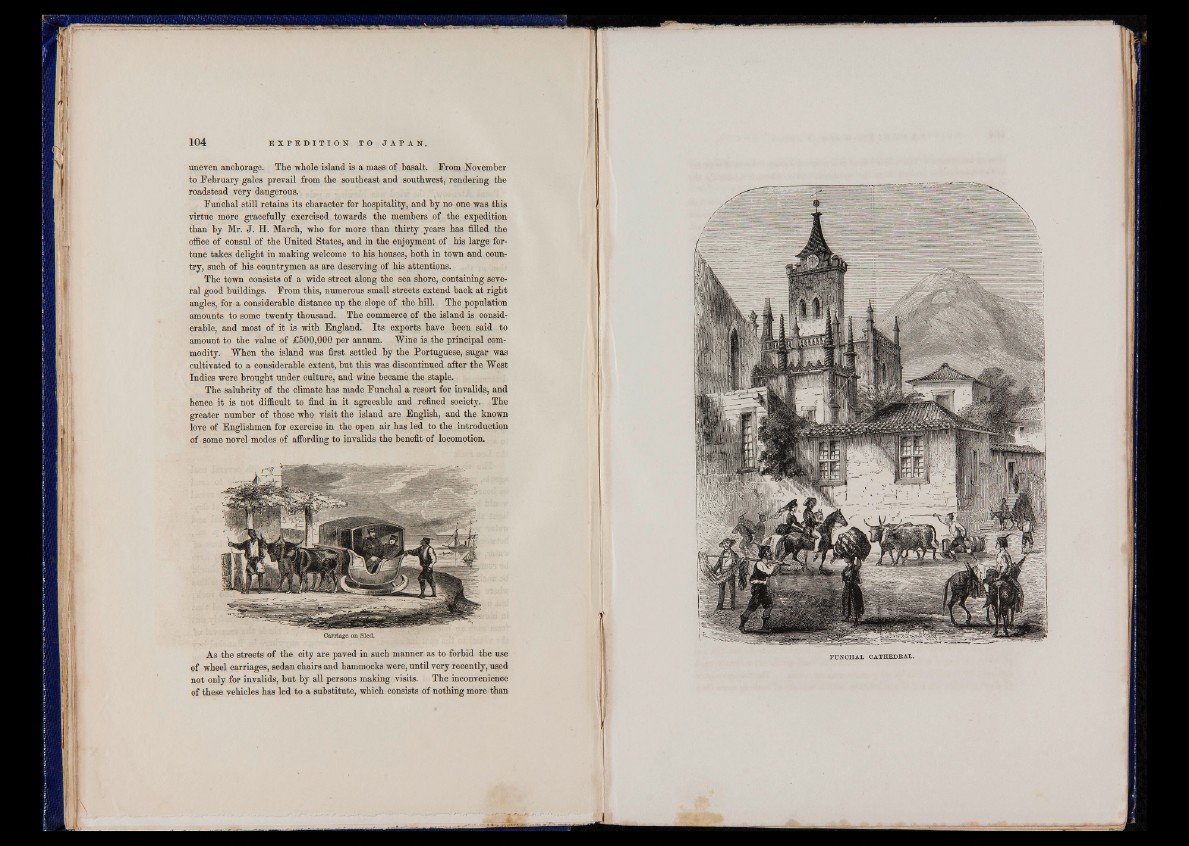
uneven anchorage. The whole island is a mass of basalt. From November
to February gales prevail from the southeast and southwest, rendering the
roadstead very dangerous.
Funchal still retains its character for hospitality, and by no one was this
virtue more gracefully exercised towards the members of the expedition
than by Mr. J. H. March, who for more than thirty years has filled the
office of consul of the United States, and in the enjoyment of his large fortune
takes delight in making welcome to his houses, both in town and country,
such of his countrymen as are deserving of his attentions.
The town consists of a wide street along the sea shore, containing several
good buildings. From this, numerous small streets extend back at right
angles, for a considerable distance up the slope of the hill. The population
amounts to some twenty thousand. The commerce of the island is considerable,
and most of it is with England. Its exports have been said to
amount to the value of £500,000 per annum. Wine is the prinoipal commodity.
When the island was first settled by the Portuguese, sugar was
cultivated to a considerable extent, but this was discontinued after the West
Indies were brought under culture, and wine became the staple.
The salubrity of the climate has made Funchal a resort for invalids, and
hence it is not difficult to find in it agreeable and refined society. The
greater number of those who visit the island are English, and the known
love of Englishmen for exercise in the open air has led to the introduction
of some novel modes of affording to invalids the benefit of locomotion.
Carriage on Sled.
As the streets of the city are paved in such manner as to forbid the use
of wheel carriages, sedan chairs and hammocks were, until very recently, used
not only for invalids, but by all persons making visits. The inconvenience
of these vehicles has led to a substitute, which consists of nothing more than
FU N C H A L U A TH E LK A L .